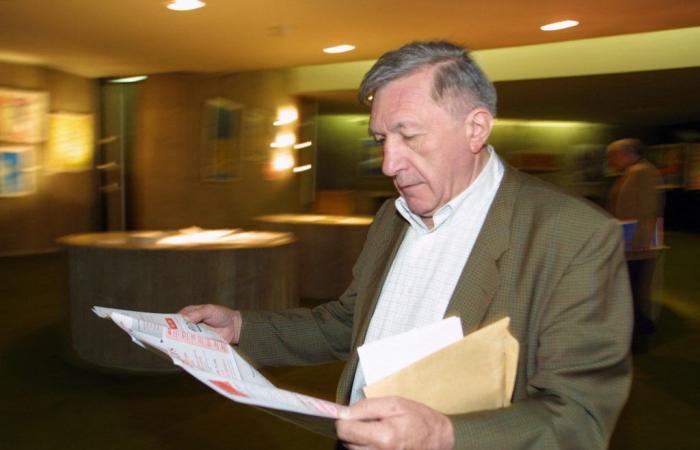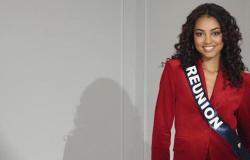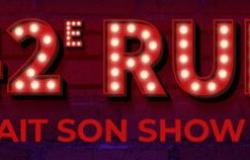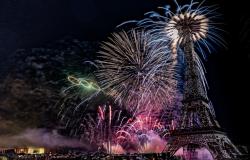André Lajoinie died on November 26, 2024 at the age of 94. The French Communist Party lost one of its historic leaders, who was also a candidate for the 1988 presidential election. Combining the great traditions of rural communism with that of factories and working-class towns, André Lajoinie was a singular communist activist and leader. Self-taught, throughout his life he continued to combine curiosity for innovations, sciences and literature. He had a taste for others and human warmth, without ever departing from the necessary firmness capable of defending the interests of the world of work and creation.
Member of the Central Committee of the PCF from 1976, then of the political bureau in 1979, he joined the secretariat in 1982. If the French mainly remember the candidate for the presidential election, André Lajoinie also had a long career as an elected official. He was a deputy for the third constituency of Allier from 1978 to 2002, regional councilor of Auvergne from 1978 to 1988, then from 1992 to 1998. As a parliamentarian, he chaired the communist group in the National Assembly for twelve years. , from 1981 to 1993. In addition to his elective functions and his responsibilities within the PCF, André Lajoinie edited the weekly the Earthand the review Economy & Politics.
In 1946, he joined the Jeunesses Communistes, then the PCF in 1948
Born on December 26, 1929 in Chasteaux in the department of La Corrèze, he remained attached to this territory as well as to the lands of Allier, while residing a good part of the week in La Courneuve, in Seine-Saint-Denis. His farmer father, a radical socialist before becoming a communist, introduced him early to public affairs. But it was the inscription “Munich is war” on a village wall in 1939 that led him to become more interested in politics and world affairs. His family supplies the resistance fighters in the heart of this land of resistance.
In 1946, he joined the Jeunesses Communistes, then the PCF in 1948, at the age of 19. He saw the inability of his parents to pay for his studies beyond the certificate as an injustice. In 1954, he left the family farm to become one of the leaders of the Corrèze federation. In July 1958, during a demonstration against supporters of French Algeria in Brive, he was seriously injured by the police and had to undergo trepanation. Treated first in Tulle, then at Sainte-Anne hospital in Paris, it will take him many months to recover.
It was from the sixties that his communist commitment brought him closer to the national leadership of the PCF. In 1963, he was called to work alongside Waldeck Rochet, in the agricultural section of the Central Committee. He then collaborated with the weekly the Earthof which he became the director in 1977 until 1996. In 1986, he wrote the book the Agricultural and Food Challenge.
He succeeds Pierre Villon as deputy for Allier
In 1972, during the 20e congress of the PCF, he joined the Central Committee, then chaired the agricultural commission of this body until 1996. During the 22e congress, moment of the modernization of the Communist Party in 1976, he became a member of the political bureau, then of the secretariat of his party until the Martigues congress in March 2000.
National leader of the PCF, he nonetheless remains an elected official attached to his department and his region. On March 19, 1978, he became a deputy for Allier and succeeded the great resistance fighter, former president of the National Front for the Liberation of France and editor of the program of the National Council of the Resistance, Pierre Villon. André Lajoinie was elected by his peers as president of the communist group in the National Assembly in February 1981 and remained so until the spring of 1993. He was also regional councilor for the Auvergne region between 1982 and 1986, then from 1992 to 1998. In 1997, when the left forces were in the majority at the Palais-Bourbon, he was president of the important Production Commission. and discussions in the National Assembly.
André Lajoinie enjoys popularity and deep respect within his training and French society. This is what led the national conference of the PCF, which was held on June 12 and 13, 1987, to nominate him as candidate for the presidential election of April 1988. For more than a year, he led a vigorous campaign. Its poster is a resumption of a call launched in July 1987 during the Gard departmental festival: “No question of letting it happen! » He thus called on the workers and the people not to lower their eyes and to raise their heads.
The meetings placed under the triptych “Justice, freedom, peace” are impressive. The electoral campaign is tense and difficult; François Mitterrand, outgoing president, is seeking a second mandate. The “big press” mistreats him. Worse, Pierre Juquin, spokesperson for the Communist Party, also declared himself a candidate. In the infernal mechanics of the institutions of the Ve Republic, he will obtain 6.78% of the votes, marking a new electoral decline for the PCF, after the 16% achieved seven years earlier by Georges Marchais.
“40 billion francs for schools, not for armaments”
André Lajoinie will have led multiple battles, often successfully, in favor of the well-being of the inhabitants of his constituency of Saint-Pourçain-sur-Sioule (Allier), to whom he listened. Each dialogue with the elected officials and voters of his department, each of his numerous readings nourished the reflections that he shared in the authorities of the Communist Party. He used it to adjust arguments and positions and relayed them in regional and national assemblies, to the government and institutions. The major campaign entitled “40 billion francs for schools, not for armaments”, which he led, reached its conclusion at the time when Lionel Jospin was Minister of National Education. Likewise, he passed an anti-layoff law in 1992, which the right worked to destroy.
Negotiating each country's budget step by step with the governments, he obtained a number of positive measures such as the increase in the back-to-school bonus, improvements to small peasant pensions, the start of the installation of electric cars in local communities, improvements in favor of social housing. He also took a very active part in the adoption of the Gayssot law against racism and anti-Semitism, as well as in the multiple initiatives of his party for the release of Nelson Mandela and the end of the apartheid regime in South Africa. .
He was on the front line of the fights against the successive reforms of the Common Agricultural Policy, or even for obtaining the referendum on the Treaty of Maastricht, after his parliamentary group had been the only one to vote against the Single European Act, a few years ago. He was also the first political leader to confront Jean-Marie Le Pen on television, on September 21, 1987.
André Lajoinie was a demanding man, diligent and conscientious in his work and the control of his files, refusing any form of compromise. He put his life at the service of others, at the service of workers and of France.
To his wife, to his son Laurent, who was a journalist for our editorial team, to his family, to his comrades, as well as to his loved ones, Humanity offers its most sincere condolences.
The journal of free intelligence
“It is through extensive and exact information that we would like to give to all free intelligences the means of understanding and judging world events for themselves. »
Such was “Our goal”as Jean Jaurès wrote in the first editorial of l'Humanité.
120 years later, it hasn't changed.
Thanks to you.
Support us! Your donation will be tax-free: giving €5 will cost you €1.65. The price of a coffee.
I want to know more!






